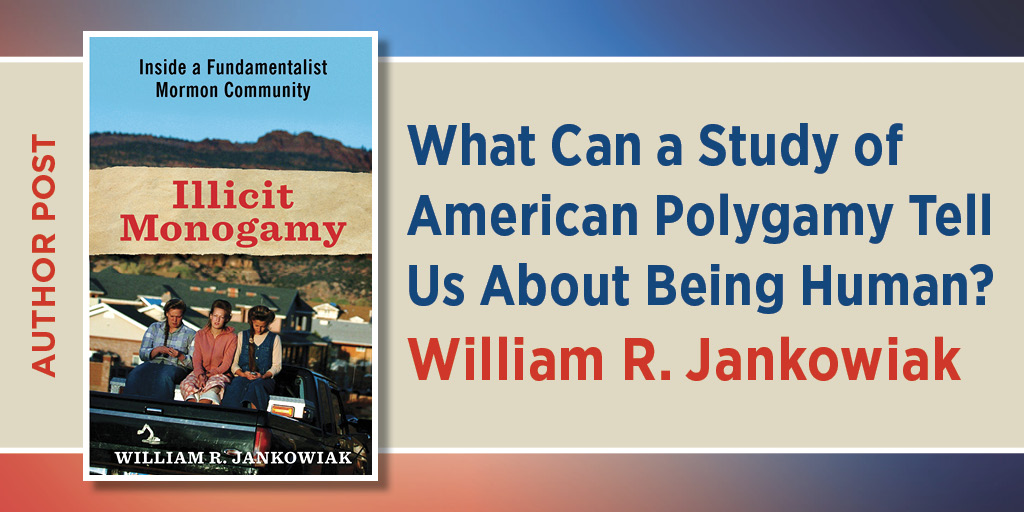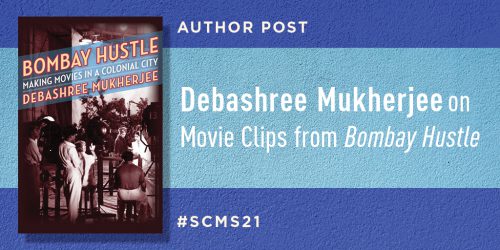What Can a Study of American Polygamy Tell Us About Being Human?
William Jankowiak

America’s fascination with the cable show Sister Wives (about an American polygynous family), along with their increased interest in exploring the viability of forming a polyamour (or plural love) arrangement, arises out of a relentless interest in whether they can achieve a more fulfilling marriage based not in a pair bond but rather in some alternative arrangement.
Recently, some thinkers have argued that we are a hybrid species that can quickly and readily shift between a pair bond and a plural partner arrangement. Although most humans live out their lives in a sexually monogamous union, it is not something that comes easily or naturally. Sexual monogamy requires adopting an ethical stance and being dedicated to upholding the norms that define and maintain it. This raises the question: If humans must be vigilant in their commitment to remain sexually faithful, does the need for this vigilance also extend to love? Is it possible to find greater contentment and life satisfaction in forming simultaneously sexual and emotional unions with a variety of individuals? This is the central claim of pair bond deniers, who insist that humans can find greater self-fulfillment in a pluralistic love than in a monogamous pair bond.
Numerous researchers have noted humans’ difficulty in sustaining a “forever” pair bond, suggested that it is reasonable to reconsider whether we are a valid pair bond species, and speculated that perhaps we are more of a hybrid species that shifts or adapts, oscillating between a pair bond and a plural bond arrangement.
This raises the question: If humans must be vigilant in their commitment to remain sexually faithful, does the need for this vigilance also extend to love?
In contrast, other researchers disagree and insist that the impulse to form a pair bond is universal, even in societies that strive to deny its existence. They point out that the pair bond deniers seldom comment on the significance of the universality of sexual jealousy and mate-guarding practices, or on the immense difficulty humans have in maintaining a noble or expansive love within a plural love setting. Although the pair bond deniers and polyamour advocates readily point out that the preferred social unit in most tribal societies is the extended family or clan, they are relatively silent about the pull frequency to form a sexual/emotional union within or outside the larger kinship group. Given this metaphysical axiom, it is easy to assume that because humans can form a plural family, they have an overwhelming desire to do so. Researchers assume that ethnographic and historical cases that discuss plural arrangements mean most community participants were satisfied (most were not) with the arrangement or if not, formed an illicit pair bond (many did) within a plural family.
Illicit Monogamy, an ethnographic exploration, delves into this debate and asks: Would individuals be equally, if not more, satisfied if they lived in a closed community whose cosmology supported the formation of plural or concurrent love? This raises an additional question: Does a society’s cosmology that regards plural love as superior to monogamous love dampen the desire and willingness to form a dyadic love bond?
My working hunch is that humans are not so much sexually monogamous as they are emotionally monogamous.
My working hunch is that humans are not so much sexually monogamous as they are emotionally monogamous. As a result, it is tough to love two people simultaneously. I conducted a six-year investigation into a Mormon fundamentalist community to determine if the hunch was correct. I found an overwhelming pull to form a pair bond within a plural or polygamous family, albeit unvoiced and denied. The phenomenon of the “favorite wife” or a husband’s preference to form a tighter emotional bond with one and only one of his wives was the primary reason for conflict and divorce. To determine the representativeness of my ethnographic Mormon fundamentalist findings, I conducted a cross-cultural study of co-wife relationships in fifty-five polygynous societies (in Africa, Asia, the Middle East, and the Amazon). I found an overwhelming desire to form an exclusive pair bond within a plural or polygynous marriage, which was also responsible for the community’s high divorce rate. Thus, my original finding is not peculiar to Mormon fundamentalism but somewhat indicative of worldwide polygamous and polyamour arrangements.
Further, my book Illicit Monogamy strives to divert readers’ attention from the expected political economy and sexual economy that has been the focus of most popular discourse on polygynous families recently. Instead, it takes them into the psychodynamics of it all, especially the tension between the cosmological-theological rationale and the psychodynamics of everyday life.
Despite pair bond deniers’ bold assertions, my research discovered that the desire to form an exclusive pair bond was every family’s “public secret.”
Unlike the usual journalism that uses actual names or the usual ethnography that prefers fake names, my book dispenses with that style out of sensitivity to the community’s wants and gratitude for their cooperation to make a more vivid argument grounded in individual examples. These become archetypes of people in a matrix of social relations, but at the same time highlight how different people act and react, think and feel, differently even in the same structural matrix.
Despite pair bond deniers’ bold assertions, my research discovered that the desire to form an exclusive pair bond was every family’s “public secret.” Moreover, an individual’s well-being is intertwined with their ability to form an emotionally exclusive and thus psychologically pleasing pair bond. Nevertheless, sustaining an emotional monogamous bond can still be a problem.
This point is recognized by Leo Tolstoy in The Kreutzer Sonata, where the lead character remarks: “Marriage ought to be based primarily on affection—love if you like—and only if this is present does marriage offer something that is . . . sacred. That is exactly what I’m talking about, the preference for one man or woman above all others, but I’m asking: a preference for how long?”
William R. Jankowiak is professor of anthropology at the University of Nevada, Las Vegas, and the author of Illicit Monogamy: Inside a Fundamentalist Mormon Community.



